 Instruct Partner
Instruct Partner
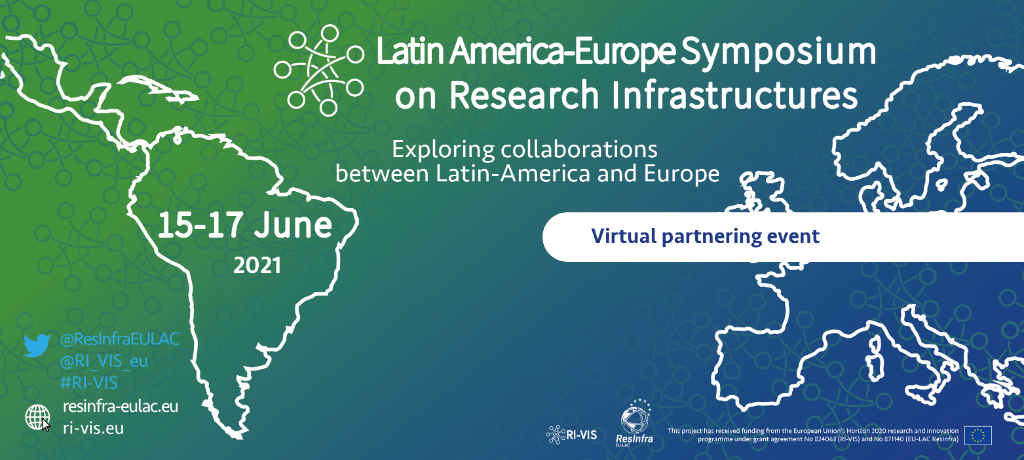
The RI-VIS Latin America - Europe Symposium will be held between Tuesday, June 15th and Thursday, June 17th 2021, as a virtual event. This event is organised in collaboration with the EU-LAC ResInfra project.
It is our pleasure to welcome you to the Latin America-Europe Symposium on Research Infrastructures.
International cooperation in science and technology is an important part of addressing major global issues like climate change, infectious disease, food security, and natural disasters. Research infrastructures (RIs) are organisations that enable scientists to use specific facilities, resources, and expertise to enable and accelerate scientific achievements, overcome boundaries, train highly skilled specialists, and promote sustainable research. Fostering RI partnerships across borders has the potential to improve the efficiency and quality of research to tackle the many challenges faced by society today.
The virtual three-day symposium brings together delegates from Latin American and European research infrastructures (RIs), science policy organisations and research institutions to discuss opportunities and challenges for RI cooperations between Latin America and Europe.
We hope to raise awareness of individual RIs, to identify measures to mitigate current challenges of bi-regional cooperations between RIs, to initiate new and strengthening existing collaborations, and to initiate networks in a sustainable way so that all stakeholders benefit.
We invite all researchers who have an interest in learning more about research infrastructures and the research opportunities they offer to scientists. The participation in this event is for free, but registration is required.
This symposium is organised as part of the RI-VIS project, a Horizon 2020-funded project to increase the visibility and raise awareness of European RIs to new communities beyond Europe, and the EU-LAC ResInfra project, a Horizon 2020-funded project which strives towards a new EU-LAC partnership in Research Infrastructures.
We are looking forward to e-meeting you soon,
Latin America-Europe Symposium on Research Infrastructures organisers
Registration for this event is now open until 14th June 2021.
Already registered? Explore the Whova platform to start engaging with other attendees and speakers!
Ahead of the symposium, the RI-VIS project has published the White Paper entitled "Recommendations towards cooperation between Latin American and European research infrastructures". This White Paper collates the insights of experts from Latin American RIs, European RIs, and policymakers, highlighting examples of Latin American-European RI collaboration, best practices for successful collaboration, perceived challenges and bottlenecks, and from these presents a series of actionable recommendations.
Adelino Canario
Director of CCMAR, Portugal

Alberto Majo
Ministry of Education, Culture and Science, Uruguay

Alexandre Morais do Amaral
EMBRAPA, Brazil

Andres Triana
Consejo Nacional de Ciencia y Tecnología (CONACYT), Mexico

Andrés López Lara
Agencia Nacional de Investigación y Desarrollo, ANID, Chile

Bahne Stechmann
EU-OPENSCREEN ERIC, Berlin, Germany

Chris Wood
National Laboratory for Advanced Microscopy, Universidad Nacional Autónoma de México (UNAM), Mexico City, Mexico

Damian Refojo
Instituto de Investigación en Biomedicina de Buenos Aires (IBioBA) - CONICET

Dominik Sobczak
European Commission DG Research & Innovation, ESFRI Executive Secretary

Federico Torres-Carballo
Ministerio de Ciencia, Tecnología y Telecomunicaciones (MICITT), Costa Rica

Fernando Amestoy
Presidente del Polo Cientifico y Tecnológico de Pando, Uruguay

Inmaculada Figueroa
Ministry of Science & innovation, Spain; and Vice-Chair of the European Strategy Forum on Research Infrastructures (ESFRI)

Jens Haberman
Director General, BBMRI-ERIC

Jose Roque
Director of Brazilian Center for Research in Energy and Materials (CNPEM), Campinas, Brazil

Juan Miguel González-Aranda
LifeWatch ERIC

Kleber Gomes Franchini
Director of Brazilian Biosciences National Laboratory (LNBio), Center for Research in Energy and Materials (CNPEM), Campinas, Brazil

Lelio Fellows Filho
Conselho Nacional de Desenvolvimento Científico e Tecnológico (CNPq), Brazil

Luis Eliécer
Executive Director of RedCLARA

Manoel Barral-Netto
Fundação Oswaldo Cruz (Fiocruz), Rio de Janeiro, Brazil

Ondrej Hradil
Research Infrastructures Manager, Masaryk University, Czech Republic

Patricia Postigo McLaughlin
European Commission
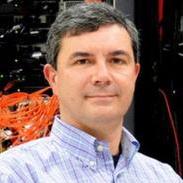
Rafael Mayo Garcia
Centro de Investigaciones Medioambientales y Tecnológicas (CIEMAT), Spain
Raquel Hurtado-Ortiz
National Biobank of Microorganisms (CNCM) - Institut Pasteur

Ricardo González T.
Laboratorio de Encuestas y Análisis Social [LEAS], Universidad Adolfo Ibáñez, Santiago, Chile
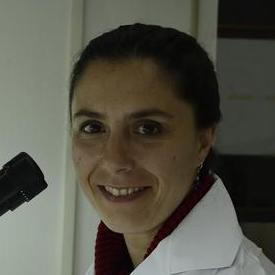
Maria Natalia Lisa
Coordinator of CeBEM and Researcher of IBR-CONICET-UNR

Sorin Hermon
Chair of the IPERION HS DIGILAB Working Group and director of STARLAB at the Cyprus Institute (CyI)
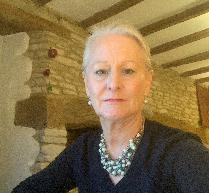
Susan Daenke
Instruct-ERIC; and Coordinator of the RI-VIS project, Oxford, UK

Sven Fahrner
Strategy and scientific coordination, EMPHASIS

Tanja Ninkovic
ARISE Program Manager
The programme for this event is displayed below and can be found on the Whova event page.
Alternatively, view or download the printable symposium poster.
Find your Timezone with our handy guide
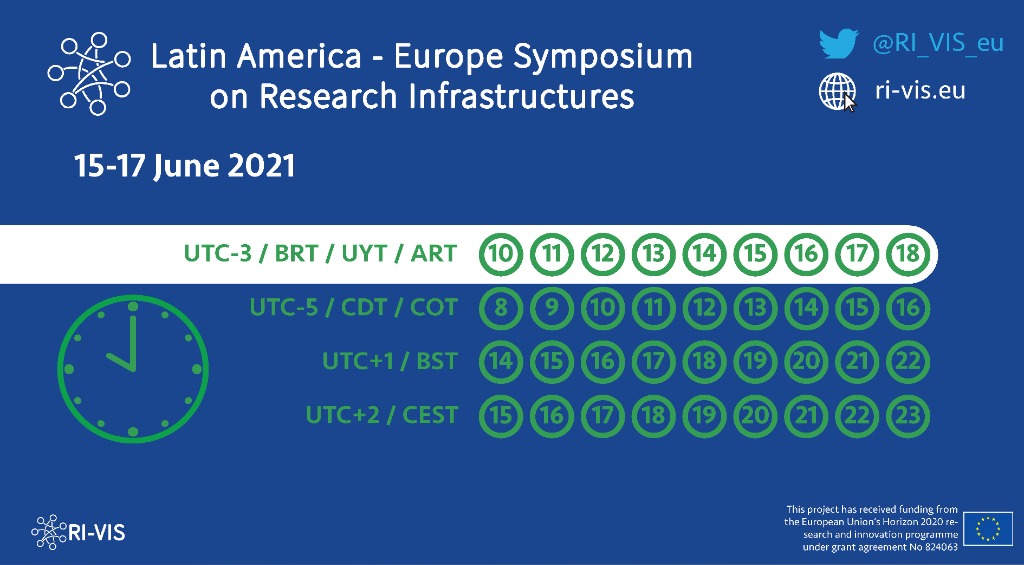
Some activities are organised around specific communities or themes in conjunction to this symposium. Follow the links below for more details
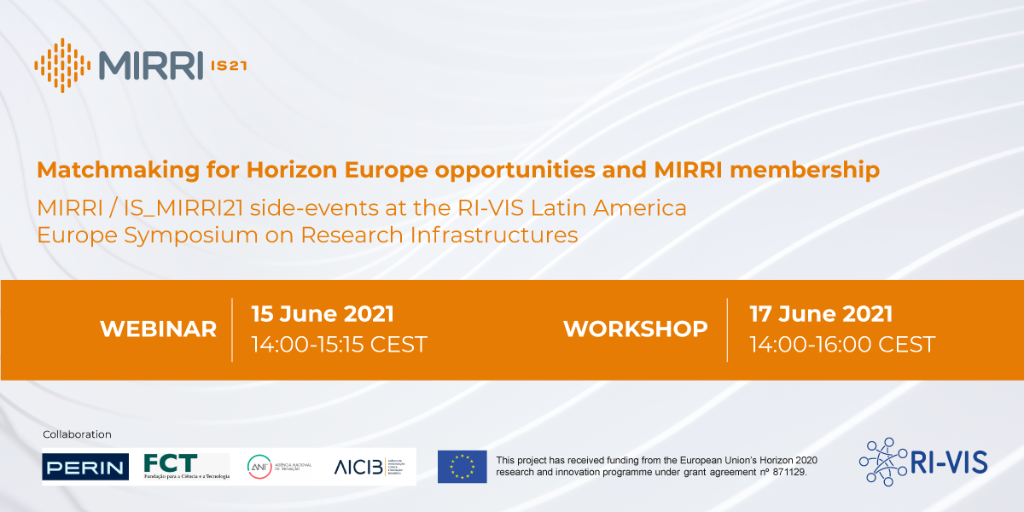
15 June 09:00-10:15 UTC-3 / 14:00-15:15 CEST
EVENT 1 | Webinar “MIRRI Membership: Boosting research and innovation in Health, Agro-food, Environment and Energy”
17 June 09:00-11:00 UTC-3 / 14:00-16:00 CEST
EVENT 2 | Workshop “International collaboration with MIRRI through new opportunities from the Horizon Europe programme”
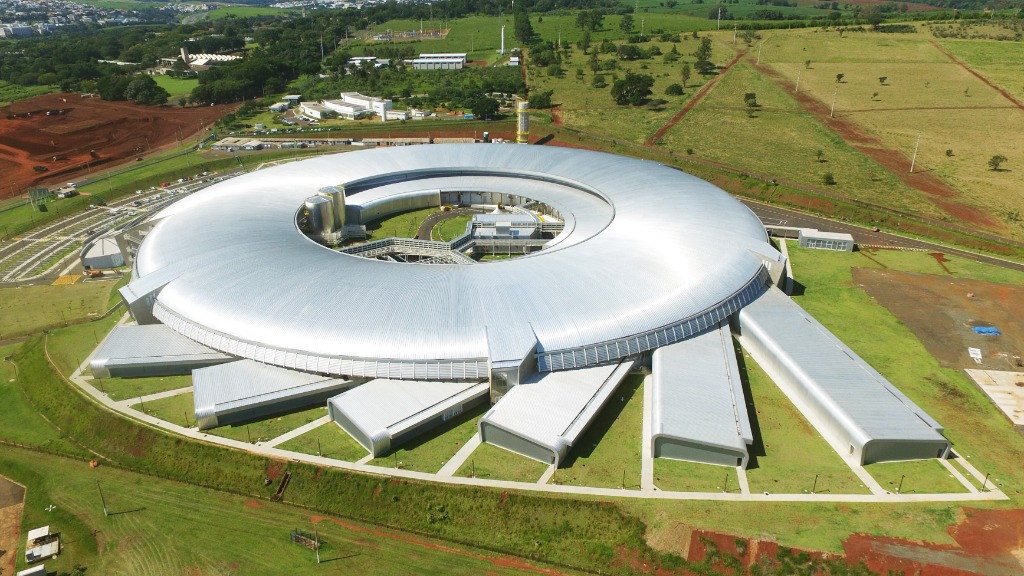
15 June 14:00-15:00 UTC-3 / 19:00-20:00 CEST
We welcome delegates to a live virtual tour of two beamlines at the Sirius synchrotron: CATERETÊ (Coherent And TimE REsolved ScatTEring) and MANACÁ (MAcromolecular micro and NAnoCrystAllography).
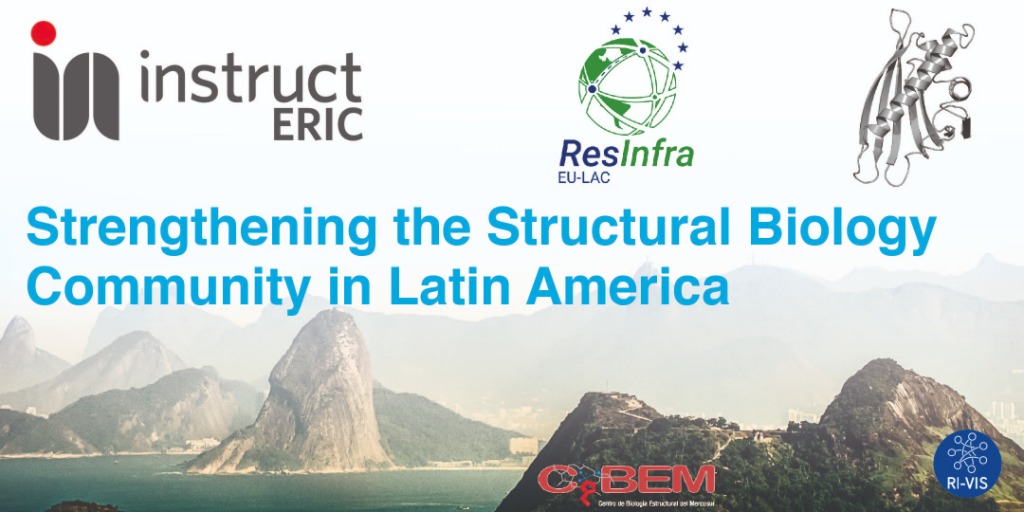
16 June 14:00-16:00 UTC-3 / 19:00-21:00 CEST
The workshop will build on ongoing landscape analysis studies, understanding of how Structural Biology is being prioritised in different Latin American (LA) countries by collecting information on needs and challenges of the community in terms of access to the infrastructure required for research. The programme also includes the opportunity to discuss these challenge and plan for the future.
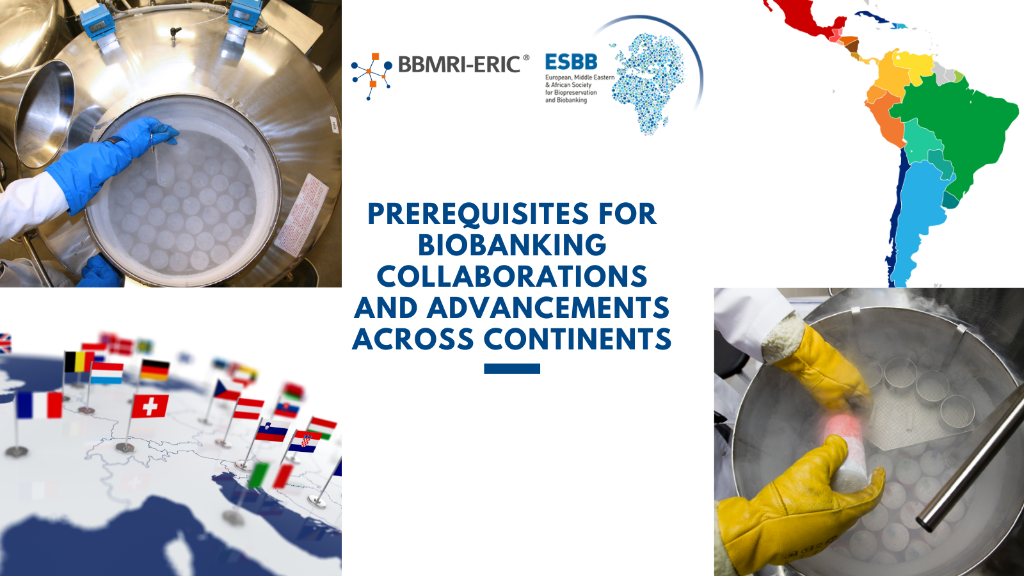
16 June 14:00-16:00 UTC-3 / 19:00-21:00 CEST
BBMRI and ESBB are joining forces to host this satellite event to talk about biobanking, quality and pre-analytical sample processing.
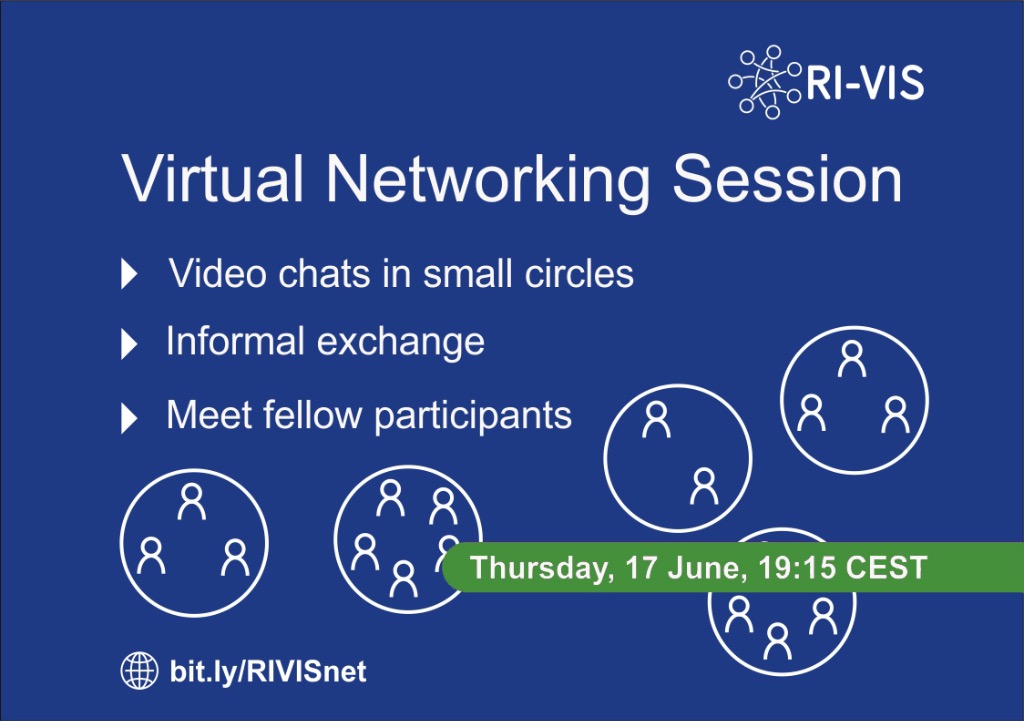
16 June 14:15-16:00 UTC-3 / 19:15-21:00 CEST
Video chats in small circles - move around and choose a group to join and talk. Informal natural exchange. Meet fellow participants.
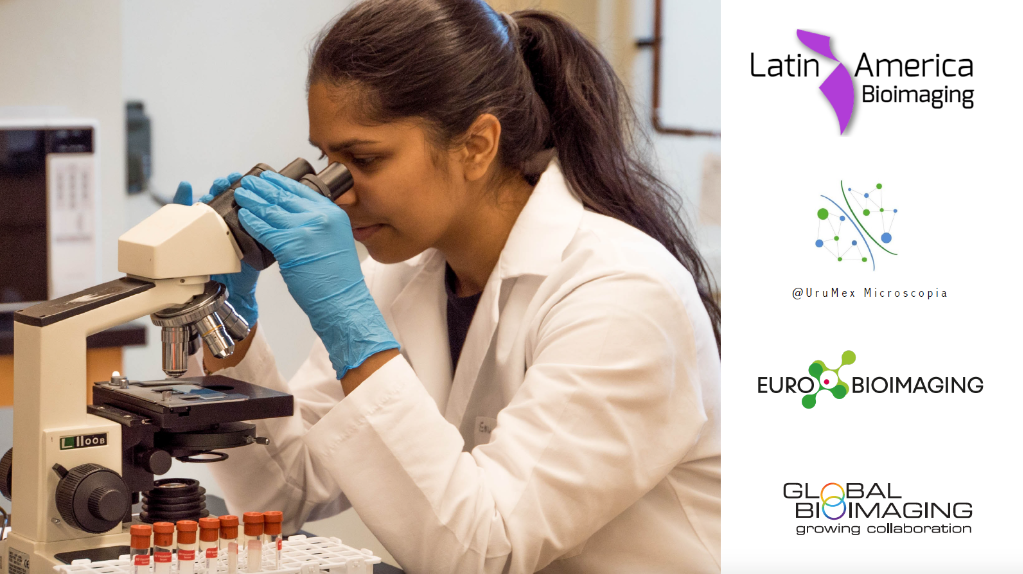
18 June 10:00-12:30 UTC-3 / 15:00-17:30 CEST
Euro-BioImaging and Latin America Bioimaging are both partners of the Global BioImaging network, through which they collaborate on many topics including exchange of best practices, training and capacity building. To promote the advancement of bioimaging worldwide and to support the consolidation of the Latin American BioImaging network, they have organised a 2.5 hour online seminar to foster exchanges between the European and Latin American scientific communities as well as the political actors involved in building Research Infrastructures.